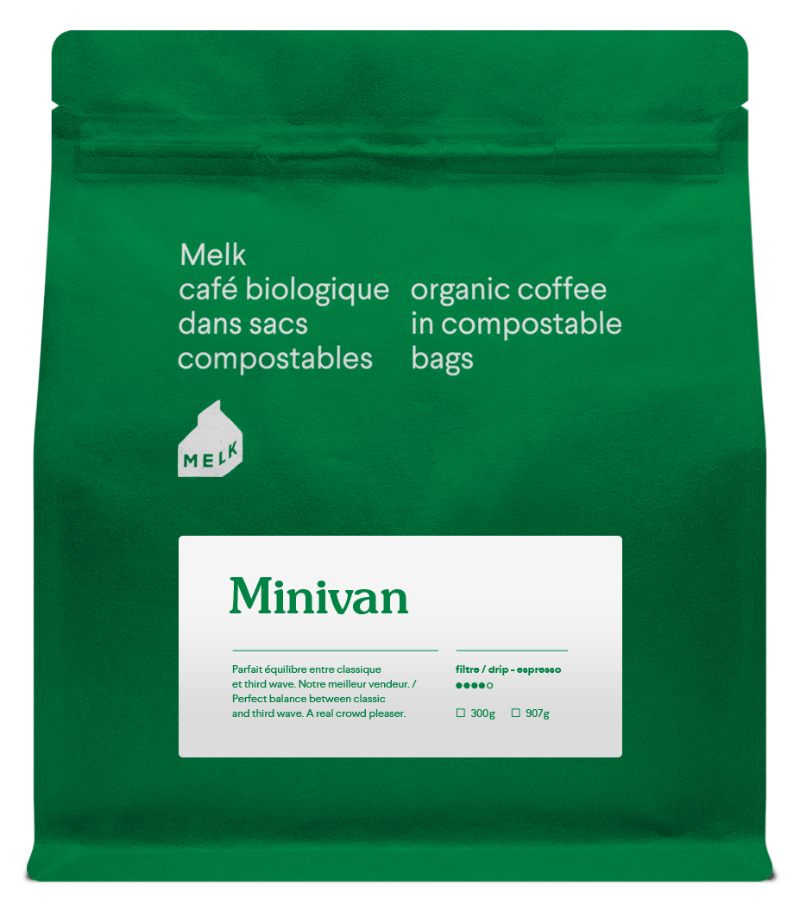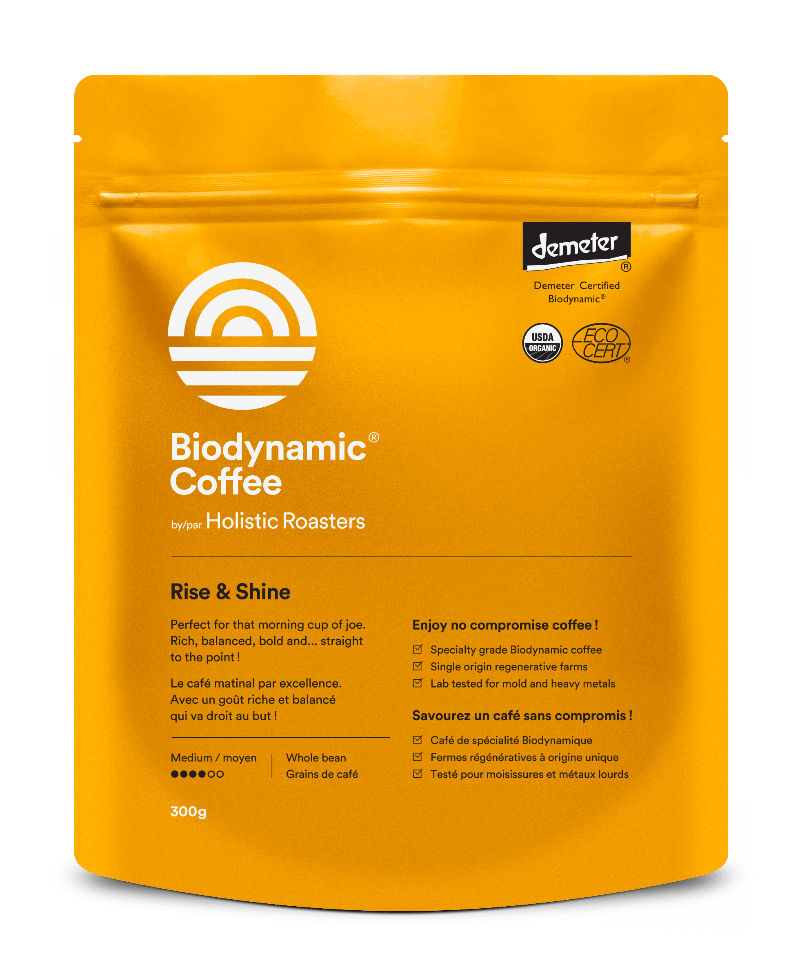Does Your Coffee Have Mold?
Why We Test Our Coffee for Mold and Mycotoxins
The Quick Scoop
Mold contamination can significantly impact coffee quality, flavor, and your health. At Holistic Roasters, we go beyond the standard specialty coffee requirements by sending every harvest for third-party lab testing to ensure our coffee is mold-free. This commitment to quality not only delivers exceptional taste but also safeguards your wellbeing and maximizes the coffee's shelf life.
Mold can be a significant problem for coffee beans because it can greatly impact the flavor and quality of the coffee as well as have significant negative health impacts. The good news is that, if you're buying Specialty Grade coffee, it's unlikely to be contaminated with mold. That's because the SCAA (Specialty Coffee Association of America) and licensed Q-graders who inspect and taste the coffee would not grade it high enough to designate it as Specialty Coffee. Still, we prefer to verify every coffee harvest we receive to ensure that it's mold-free.

Top 3 Reasons We Send Our Coffee for 3rd Party Lab Tests
1. Ensure Excellent Taste
As mentioned, mold can cause coffee beans to develop off-flavors and aromas, which will make the coffee taste bad. One of the things people say they love about Biodynamic Coffee is the taste – it's no accident. We take our coffee seriously.
2. Health Benefits
Mold can also be a health hazard. Some types of mold produce mycotoxins, which are toxic compounds that can cause serious health problems if consumed in large quantities. There are many health benefits associated with drinking coffee. Why negate these with mycotoxin contaminated coffee?
3. Shelf Life
Mold can also affect the storage and transport of coffee beans. If mold is present, it can cause the beans to spoil more quickly, resulting in a loss of quality and freshness – who wants that? Many of our customers say they find that our coffee retains its freshness and flavors longer than other coffees. We certainly agree.
It costs more to test every harvest we receive for mold but we think it's worth it to make sure our coffee has great tasting flavors and aromas, and that it's the cleanest and healthiest coffee you can buy!
More On Mycotoxins
What Are Mycotoxins?
Mycotoxins are toxic compounds produced by certain types of mold, which can grow on various crops, including coffee beans. These compounds are secondary metabolites, meaning they're not necessary for the mold's growth or reproduction but are produced under certain conditions.
The most common mycotoxins found in coffee include:
- Ochratoxin A (OTA): The most prevalent mycotoxin in coffee, produced by Aspergillus and Penicillium mold species
- Aflatoxins: Highly carcinogenic compounds produced primarily by Aspergillus flavus and Aspergillus parasiticus
- Sterigmatocystin: A precursor to aflatoxins with similar toxic properties
These compounds can contaminate coffee at various stages—during growing, harvesting, processing, or storage—especially when conditions are warm and humid.
Health Impacts of Mycotoxins
Mycotoxins are toxic compounds that can have various negative health impacts, depending on the type and amount consumed. Some of the health risks include:
- Immunotoxicity: Mycotoxins can suppress the immune system, making the body more susceptible to infections and disease.
- Carcinogenicity: Some mycotoxins have been classified as carcinogens, which means that they can increase the risk of cancer.
- Nephrotoxicity: Mycotoxins can damage the kidneys, leading to kidney failure and other serious health problems.
- Hepatotoxicity: Mycotoxins can damage the liver, leading to liver failure and other serious health problems.
- Neurotoxicity: Mycotoxins can damage the nervous system, leading to neurological problems such as tremors, seizures, and cognitive impairment.
- Reproductive toxicity: Mycotoxins can affect the reproductive system, leading to infertility, miscarriages, and other serious health problems.
- Acute toxicity: Some mycotoxins can cause acute symptoms such as nausea, vomiting, diarrhea, and other symptoms that can be severe, depending on the amount consumed.
Some people may be more sensitive to mycotoxins than others, and long-term exposure can increase the risk of negative health impacts. So, it's important to take steps to reduce the risk of exposure to mycotoxins, and avoiding products that may be contaminated.
Our Coffee Testing Process
At Holistic Roasters, we take a comprehensive approach to testing our coffee for mycotoxins:
- Sample Collection: We take multiple samples from each harvest batch to ensure representative testing.
- Third-Party Analysis: Our samples are sent to independent, certified laboratories that specialize in food safety testing.
- Comprehensive Screening: Testing includes analysis for all major mycotoxins, including Ochratoxin A, Aflatoxins B1, B2, G1, G2, and other relevant contaminants.
- Strict Standards: We adhere to standards far stricter than required by regulations, ensuring maximum safety.
- Batch Tracking: Every batch is tracked and recorded, with test results maintained for full traceability.
Only coffee that passes our rigorous testing process makes it to our roasters and ultimately to your cup.
Preventing Mycotoxin Contamination
Our partner farms implement numerous practices to prevent mycotoxin development from the start:
- Proper Harvesting: Selective picking of only ripe cherries and keeping them off the ground
- Careful Processing: Quick processing after harvest to prevent fermentation errors
- Controlled Drying: Using raised beds and proper airflow to ensure even, thorough drying
- Optimal Storage: Maintaining appropriate moisture levels and using protective packaging
- Temperature Control: Keeping coffee in cool, dry conditions throughout transportation
These preventative measures, combined with our testing protocols, ensure that our coffee remains free from harmful mycotoxins from farm to cup.
The Clean Coffee Difference
Our Commitment to Clean Coffee
At Holistic Roasters, we're committed to providing you with the cleanest, healthiest coffee possible. Our rigorous testing process ensures that every batch of our Biodynamic coffee is free from mold and mycotoxins, so you can enjoy all the flavor and health benefits without worry.
Shop Our Mold-Free Coffee




